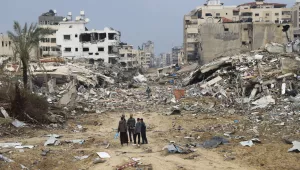Forced migration not only disrupts the lives of individuals, but also tears apart the fabric of communities. The loss of close-knit social networks can lead to feelings of isolation and loneliness, which can have a profound impact on mental health. Women, who are often the primary caregivers and protectors of children, can bear the brunt of these consequences. Women and children are particularly vulnerable during forced migration as they face higher risks of sexual and gender-based violence, exploitation, and abuse. Displacement can expose them to increased rates of domestic violence and trafficking, further exacerbating their mental health conditions. Additionally, women and girls may also face additional challenges in accessing reproductive healthcare services, including prenatal and maternal care. The lack of proper healthcare can lead to worsened health outcomes and increased mortality rates among vulnerable populations.
To address these challenges, it is crucial to provide comprehensive support for displaced individuals and communities. By addressing these issues, it becomes possible to alleviate the negative consequences and help displaced individuals and communities rebuild their lives.


